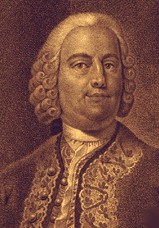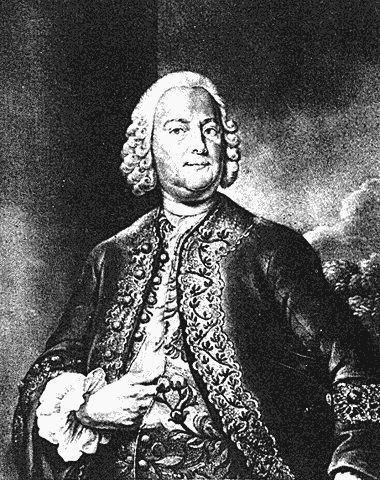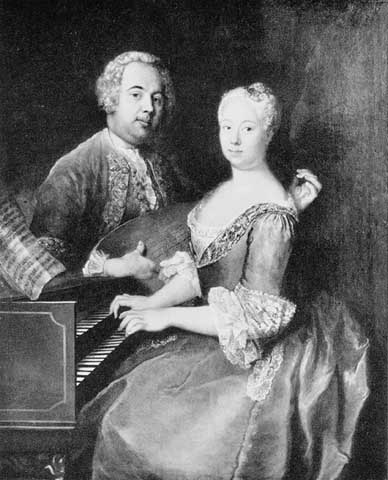

German composer. Sang in the Dresden
Kreuzschule under Grundig; later attended Leipzig University.
Studied with Benisch, Pezold, and J. C. Schmidt; participated
as chorus member in Dresden's opera; visited Prague for the
coronation festival in 1723. He was appointed tenor in the
opera of the Duchy of Braunschweig in 1725, soon becoming
Vice-Kapellmeister, and wrote six operas for the court.  Crown
Prince Frederick of Prussia
had wanted to engage him as early as 1733, but was unable to
do so until the death of Duke Ludwig Rudolph in 1735. As part
of Frederick's musical retinue he wrote and performed cantatas,
directed the chamber music, and instructed both the prince and
Franz Benda. Upon Frederick's ascent to the throne in 1740, Graun was sent
to Italy to recruit singers for the Berlin Opera; from 1741 on
he was the principal stage composer in Berlin, producing
twenty-six operas. These works show the imprint of the king's
personality in many ways: Frederick wrote several of his
librettos, including
Montezuma
(1755), while Graun was often obliged to rewrite music or use
particular forms to please the monarch.
Crown
Prince Frederick of Prussia
had wanted to engage him as early as 1733, but was unable to
do so until the death of Duke Ludwig Rudolph in 1735. As part
of Frederick's musical retinue he wrote and performed cantatas,
directed the chamber music, and instructed both the prince and
Franz Benda. Upon Frederick's ascent to the throne in 1740, Graun was sent
to Italy to recruit singers for the Berlin Opera; from 1741 on
he was the principal stage composer in Berlin, producing
twenty-six operas. These works show the imprint of the king's
personality in many ways: Frederick wrote several of his
librettos, including
Montezuma
(1755), while Graun was often obliged to rewrite music or use
particular forms to please the monarch.  As representative
examples of opera seria, they generally consist of an
alternation between recitative and florid aria (though in a
letter to
Telemann
he stated that in arias "one must make no unnatural
difficulties without considerable cause"). Later pupils of his
included
Nichelmann
and
Kirnberger
. In addition to operas, he produced sacred and secular vocal
music, concertos, trio sonatas, and other chamber pieces. Apart
from a Te Deum written to commemorate Frederick's victory at
the Battle of Prague in 1756, his best-known work (and
acknowledged masterpiece) is the Passion oratorio
Der Tod Jesu
(1755, libretto by Rammler), performed repeatedly in Germany
well into the 19th century and cited by Marpurg, Hiller, and
Koch as both a popular and worthy composition.
As representative
examples of opera seria, they generally consist of an
alternation between recitative and florid aria (though in a
letter to
Telemann
he stated that in arias "one must make no unnatural
difficulties without considerable cause"). Later pupils of his
included
Nichelmann
and
Kirnberger
. In addition to operas, he produced sacred and secular vocal
music, concertos, trio sonatas, and other chamber pieces. Apart
from a Te Deum written to commemorate Frederick's victory at
the Battle of Prague in 1756, his best-known work (and
acknowledged masterpiece) is the Passion oratorio
Der Tod Jesu
(1755, libretto by Rammler), performed repeatedly in Germany
well into the 19th century and cited by Marpurg, Hiller, and
Koch as both a popular and worthy composition.